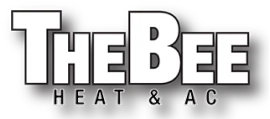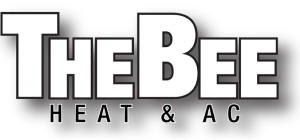Ever wondered what those HVAC codes and standards are all about? What do they mean for cooling and energy efficiency in your home or office? Keep reading to find out!
On This Article
hide
1)
What are the Codes and Standards for HVAC Systems?
2)
What is ASHRAE/ANSI Standard 90.1?
3)
The International Energy Conservation Code (IECC)
4)
The Uniform Mechanical Code (UMC)
5)
The National Electrical Code (NEC)
6)
Building Code Requirements for HVAC Systems
What are the Codes and Standards for HVAC Systems?
HVAC systems must meet certain codes and standards in order to ensure the safe and efficient operation of HVAC equipment. HVAC systems are typically regulated by local, state, and federal agencies that establish guidelines for HVAC installation, design, maintenance, and safety. Common HVAC-related codes and standards include ASHRAE 90.1, ICC International Energy Conservation Code (IECC), NFPA 70 – National Electric Code (NEC), and UMC Uniform Mechanical Code (UMC).
HVAC systems must adhere to these codes and standards in order to be considered safe, reliable, and energy efficient. HVAC contractors must also be aware of local building codes and regulations in order to ensure that HVAC systems are installed correctly. HVAC codes and standards help protect the safety of HVAC systems and their users while also promoting energy efficiency. The inclusion of HVAC codes and standards helps create an environment that is safer, more efficient, and better protected from potential hazards.
What is ASHRAE/ANSI Standard 90.1?
The American Society of Heating, Refrigerating and Air-Conditioning Engineers (ASHRAE) is an international organization devoted to the investigation, research, and promotion of HVAC systems. Established in 1894, ASHRAE strives to advance HVAC systems as well as industry design standards, improve HVAC-related comfort levels and serve the public’s well-being through efficient HVAC applications.
The ASHRAE/ANSI Standard 90.1 is a comprehensive HVAC energy standard that sets minimum standards for efficiency and lays out requirements to reduce energy consumption and optimize HVAC systems. It applies to the design, construction, renovation, and operation of HVAC systems in most commercial and industrial buildings. Its stringent guidelines are designed to maximize cost-effectiveness while controlling environmental impacts by reducing HVAC system energy consumption.
Regular audits of compliance with the Standard help ensure HVAC system performance over time and enable building designers, owners, facility managers, and HVAC contractors to develop quality HVAC systems tailored to site conditions. Utilizing the ASHRAE/ANSI Standard 90.1 is a sound investment since all related costs are more than offset by ensuing energy savings, making it an invaluable resource for HVAC practitioners everywhere.
The International Energy Conservation Code (IECC)
The International Energy Conservation Code (IECC) is an essential tool for HVAC professionals. It provides standards, regulations, and recommended practices to promote the efficient use of energy while maintaining the safety and comfort of occupants in residential buildings. It focuses on areas such as HVAC systems, building envelope components, lighting systems, equipment selections, and renewable energy sources.
HVAC installers must stay up-to-date with the IECC for their professional practice to ensure that buildings reach maximum efficiency and performance compliance. In short, knowledge of the IECC can put HVAC practitioners at an advantage in the competitive market.
The Uniform Mechanical Code (UMC)
The Uniform Mechanical Code (UMC) is an important resource for HVAC professionals. This code regulates HVAC system design, installation procedures, and standards, making sure that HVAC systems operate safely, reliably, and in compliance with the law. By using the UMC as a reference, HVAC contractors can ensure the highest levels of quality and safety beyond what is required by minimum industry standards.
It helps to provide uniformity of practices throughout the HVAC industry and provides a backstop on safety issues by specifying permissible components such us materials, types of fuel used for HVAC systems, system capacities, and operating requirements. All HVAC contractors should familiarize themselves with the UMC to perform their work in accordance with its mandates and minimize risk related to potential liabilities or accidents.
The National Electrical Code (NEC)
The National Electrical Code (NEC) is a comprehensive and frequently updated set of standards related to safe electrical installation and maintenance. It covers anything from HVAC wiring to emerging technologies like potential electric car charging stations, helping ensure that all electrical work is done in accordance with the strictest safety regulations. Its thorough documentation makes it an essential resource for electricians and HVAC professionals alike. The NEC’s recurring updates provide a framework for new solutions to old problems, making sure no stone goes unturned when it comes to safety concerns.
Building Code Requirements for HVAC Systems
HVAC systems are an integral components of any building, and they are regulated to ensure the safety and comfort of its occupants. HVAC systems must comply with certain regulations and requirements set forth by building codes in order to be considered safe.
These codes include standards for performance and installation, as well as the inspection process HVAC contractors must go through to guarantee their work is up to par. HVAC professionals know that failure to meet these building code requirements can lead to risks such as fires, carbon monoxide poisoning, and malfunctioning HVAC systems. It is critical that HVAC contractors have a deep understanding of these code requirements in order to protect their clients from potential danger.

